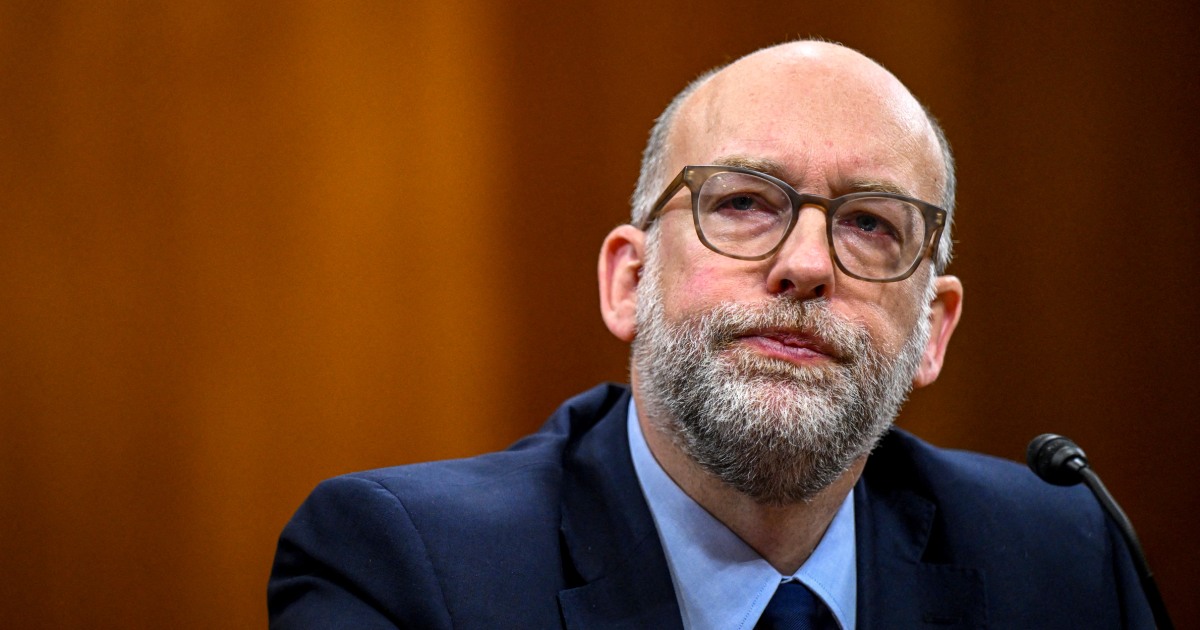Russell Vought: The Architect Behind Project 2025 Takes the Helm as White House Budget Director
In a pivotal move, Senate Republicans have confirmed Russell Vought as the new White House budget director. Vought, a significant player in Project 2025, is expected to bring a fresh perspective to fiscal policy and strategic governance in the upcoming administration. His appointment not only marks a shift in leadership but also raises questions about the future direction of the nation’s budgetary process. This article delves into Vought’s background, the implications of his appointment, and what this could mean for American governance.
Who is Russell Vought?
Russell Vought is no stranger to the intricacies of federal budget management and conservative governance. Prior to his appointment as budget director, Vought served as the Director of the Office of Management and Budget (OMB) during the Trump administration. His tenure at OMB was characterized by a commitment to reducing government spending and advocating for conservative fiscal policies.
Vought’s experience extends beyond just budget management; he has been a vocal proponent of various initiatives aimed at reshaping the federal government. As a key figure in Project 2025, which aims to implement a series of conservative reforms, Vought has positioned himself as a champion for efficiency and accountability in government spending. His background in economics and policy analysis further solidifies his credentials as an effective budget director.
The Significance of Project 2025
Project 2025 is an ambitious initiative that seeks to overhaul the federal government to align it more closely with conservative values. Launched by the Heritage Foundation, this project aims to identify, develop, and advocate for policies that would reduce the size and scope of government while enhancing its functionality. Some key elements of Project 2025 include:
- Fiscal Responsibility: Emphasizing balanced budgets and reduced federal spending.
- Regulatory Reform: Streamlining regulations to promote economic growth and innovation.
- Government Accountability: Ensuring transparency and accountability in government operations.
- National Security: Strengthening defense and security policies.
Vought’s leadership in this initiative signifies a commitment to these principles and suggests that he will prioritize these objectives in his role as budget director. With his extensive knowledge and experience, Vought is well-positioned to guide the budget process in a manner that reflects the goals of Project 2025.
Implications of Vought’s Appointment
The confirmation of Russell Vought as White House budget director could herald a significant shift in fiscal policy. Here are some potential implications of his appointment:
1. A Shift Toward Conservative Fiscal Policies
Under Vought’s leadership, the budgetary process may lean heavily toward conservative fiscal policies. This could mean an emphasis on spending cuts, tax reforms, and a reduction in the federal workforce. Vought’s track record suggests that he will advocate for a budget that prioritizes national debt reduction and fiscal conservatism.
2. Increased Scrutiny of Federal Programs
Vought is likely to scrutinize existing federal programs with a critical eye. His focus on accountability and efficiency may result in the reevaluation or elimination of programs deemed ineffective. This approach could lead to a leaner federal government, but it may also face opposition from those who advocate for the continuation of certain social programs.
3. Greater Emphasis on Economic Growth
With Vought at the helm, the administration may prioritize policies that stimulate economic growth. This could involve tax reforms aimed at incentivizing business investment and job creation. Vought’s experience in economic policy will serve him well in developing strategies that align budgetary decisions with broader economic goals.
4. Potential Pushback from Opposition Parties
Given the contentious nature of federal budgeting, Vought’s conservative stance may lead to pushback from Democratic lawmakers. The potential for partisan conflict over budgetary priorities is high, especially regarding social programs and funding for various federal initiatives. Vought will need to navigate these challenges carefully to achieve his objectives.
Challenges Ahead
While Vought’s appointment brings optimism for conservative fiscal governance, it is not without challenges. Some of the key challenges he may face include:
- Balancing Fiscal Restraint with Social Needs: Finding a balance between reducing spending and addressing social needs will be critical. Vought will need to consider the implications of budget cuts on vulnerable populations.
- Managing Partisan Divides: The current political landscape is highly polarized. Vought will have to work across the aisle to build consensus on budgetary issues.
- Addressing National Debt: Tackling the national debt while maintaining economic growth will be a delicate balancing act.
Looking Ahead: The Future of Federal Budgeting
As Russell Vought takes on the role of White House budget director, all eyes will be on how he implements the principles of Project 2025. His ability to navigate the complexities of federal budgeting while adhering to conservative values will be crucial in shaping the future of American governance.
The implications of his leadership extend beyond just budget numbers. Vought’s approach could redefine how government operates, emphasizing efficiency, accountability, and a focus on economic growth. As the administration moves forward, Vought’s influence will likely be felt in various sectors, from healthcare to education, as budget decisions ripple through the fabric of federal programs.
Conclusion
Russell Vought’s confirmation as White House budget director marks a significant moment in American governance. As the architect behind Project 2025, he is poised to influence fiscal policy and government operations profoundly. While challenges lie ahead, Vought’s experience and commitment to conservative principles may pave the way for a new era of budgetary governance. Observers will be keenly watching how he balances fiscal responsibility with the needs of the American people, ultimately shaping the future of federal budgeting in the years to come.
See more BBC Express News

